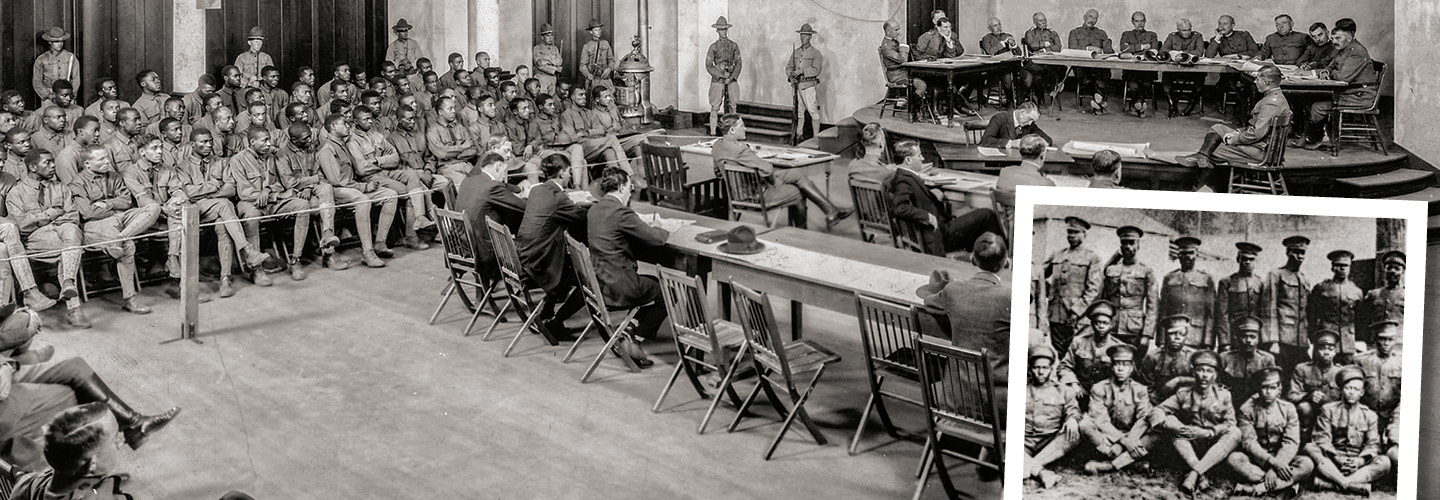More than a century ago, 110 Black American soldiers were convicted of murder, mutiny, and other crimes after a riot in Houston.
The U.S. Army hanged 19 of the soldiers, including 13 on a single day—December 11, 1917—as World War I raged. It was the single largest mass execution of American soldiers by the government.
The soldiers’ families have spent decades fighting to show that the men were betrayed by the military. In November, they won a measure of justice: The Army said it had formally overturned all 110 convictions and acknowledged that the military trials were tainted by racial discrimination.
“Can you balance the scales by what we’re doing?” says Jason Holt, whose uncle, Pfc. Thomas C. Hawkins, was among the first 13 soldiers hanged in 1917. “I don’t know. But it’s an attempt. It’s an attempt to make things right.
More than a 100 years ago, 110 Black American soldiers were found guilty of murder, rebellion against America, and other crimes after a riot in Houston, Texas.
The U.S. Army hanged 19 of the soldiers, including 13 on a single day—December 11, 1917—during World War I. It was the single largest mass execution of American soldiers by the government.
The soldiers’ families have spent decades fighting to show that the men were wrongfully convicted by the military. In November, they won their fight. The Army said it had formally overturned all 110 convictions. They admitted that the military trials were influenced by racial discrimination.
“Can you balance the scales by what we’re doing?” says Jason Holt, whose uncle, Pfc. Thomas C. Hawkins, was among the first 13 soldiers hanged in 1917. “I don’t know. But it’s an attempt. It’s an attempt to make things right.”

